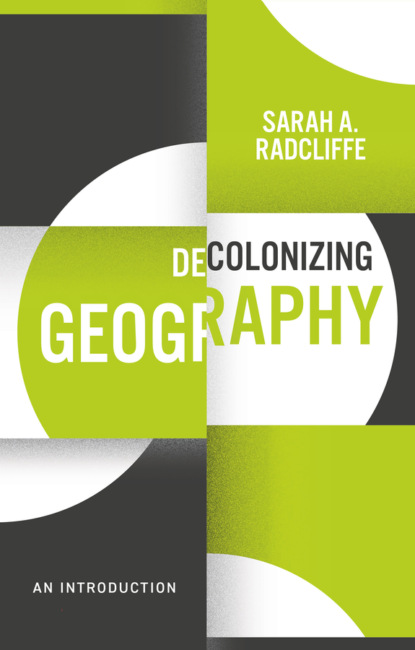ection id="ufa5d220a-bb0e-5404-9462-5e8dedbca16e">
Table of Contents
1 Cover
7 Preface
8 Foreword: Decolonizing in a North–South Dialogue, by Rogério Haesbaert
10 1 Why Decolonize Geography? I The Geographies of Coloniality Coloniality’s urban landscapes and decolonizing action II Coloniality (How to Recognize It) and Decolonizing III Historical Geographies of Colonialism and Decolonization Colonialisms: plural forms, diverse outcomes Decolonization: political independence? Decolonizing: unfinished business IV Coloniality and Modernity in the One-World World Physical geography and colonial science Geography’s ‘one-world world’ V Racism in the Colonial Present VI Decolonizing Geography: An Introduction Decolonizing physical geography Decolonizing in practice: re-drawing Los Angeles Why decolonizing geography matters VII Chapter Summary and Outline of Book Outline of the book Further Reading and Resources Readings Websites Notes
11 2 Postcolonialism and Decoloniality I Postcolonialism: Critiques of Colonial Discourse Limitations of postcolonialism II Subaltern Studies Limitations of the subaltern studies approach III Modernity-Coloniality-Decoloniality (MCD) Group Limitations of the MCD approach IV Indigenous and Settler Colonialism Theories Limitations of Indigenous and settler colonialism theories V Chapter Summary Further Reading and Resources Readings Websites Notes
12 3 Decolonizing Geographies I Geography’s Sanctioned Ignorance II ‘Alterable Geographies’: Ways to Decolonize Geography III Turning the Decolonial into Geography What geography adds to decolonizing IV Decolonial Kaleidoscope Indigenous geographies Black geographies Decolonial feminisms and decolonizing embodiments Critical geographies of violence and peace V Ways Forward: Limitations of Decolonizing Approaches VI Chapter Summary Further Reading and Resources Readings Websites Notes
13 4 Decolonizing Geographical Concepts I Space, Place and Scale II Society and Space III Environment and Landscape IV
